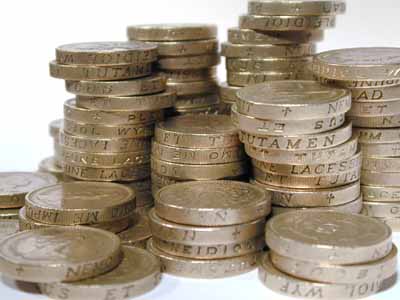
Plus Advent Calendar Door #9: The missing pound
I went Christmas shopping yesterday, to buy a book from the local bookshop that costs £7. I didn't have any money, so I borrowed £5 from Marianne and £5 from Owen. I bought the book and got £3 change. I gave £1 back to each of my kind colleagues and I keep the remaining £1. I now owe each of them £4 and I have £1, giving £9 in total. But I borrowed £10. Where's the missing pound?

There it is!
The answer is that the £10 are a red herring. There's no reason why the money I owe after the whole transaction and the money I still have should add up to £10. Rather, the money I owe minus the change I got should come to the price of the book, that is £7. Giving a pound back to each of Marianne and Owen just re-distributes the amounts. The money I still owe is reduced to £8 and the money I still have to £1. Rather than having £10-£3=£7, we now have £8-£1=£7. Mystery solved!